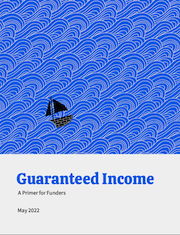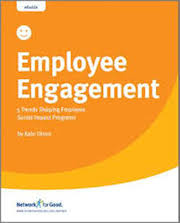Site Search
- resource provided by the Forum Network Knowledgebase.
Search Tip: Search with " " to find exact matches.
CNJG, in partnership with the Center for Nonprofits, is thrilled to invite you to a virtual launch event to celebrate the debut of the New Jersey Philanthropy Hub—a groundbreaking, one-stop platform for understanding and strengthening philanthropy in our state—built by Impala.
On October 24, there is a corresponding launch event for grantmakers in New Jersey. If you are a grantmakers, please register for the October 24 event here.
Cost: This launch event is free for nonprofits who are based in, operate in, and fundraise in New Jersey.
Read more about Impala and the partnership with CNJG and the Center for Nonprofits.
CNJG, in partnership with the Center for Nonprofits, is thrilled to invite you to a virtual launch event to celebrate the debut of the New Jersey Philanthropy Hub—a groundbreaking, one-stop platform for understanding and strengthening philanthropy in our state—built by Impala.
On October 23, there is a corresponding launch event for nonprofits in New Jersey. If you are a nonprofit, please register for the October 23 event here.
Cost: This launch event is free for Grantmakers who are based in, operate in, and fundraise in New Jersey.
Read more about Impala and the partnership with CNJG and the Center for Nonprofits.
As we witness the initial impact of Hurricane Dorian, we are reminded that many of our communities are still targets for further devastation from this storm over the next few days.
While we recognize that many of us have survived recent hurricanes like Sandy and Maria, we also know that the struggle continues, and we need to do our best to help meet the needs of current victims caught in the wake of the storm.
In light of this situation, we are providing our membership with the latest information to help you determine how your organization might engage in response and recovery efforts.
Resources
- The Center for Disaster Philanthropy has created a Hurricane Dorian disaster profile, which provides updates on the storm as well as information on the areas of greatest need
- The Center for Disaster Philanthropy has also launched the CDP 2019 Atlantic Hurricane Season Recovery Fund to support communities that will be affected by Hurricane Dorian. This fund focuses on medium- and long-term recovery, with the understanding that individuals and communities will need the support of private philanthropy for months and years to come as they navigate the road to recovery.
- The Disaster Philanthropy Playbook is a comprehensive handbook outlining best practices and innovative approaches that the philanthropic community can adopt in addressing recovery after natural disasters. CNJG’s lessons learned in the aftermath of Superstorm Sandy helped lead the creation of this Playbook.
- Locally in Florida, the Miami Foundation for a Greater Miami created a Hurricane Dorian resource page.
- The Jessie Ball duPont Fund resource Creating Order from Chaos: Roles for Philanthropy in Disaster Planning and Response provides a framework for steps that can be taken for philanthropy to respond to disasters.
- The New York Times has released an article sharing multiple ways to help Hurricane Dorian survivors in the Bahamas.
- Charity Navigator has created a list of high-rated organizations providing aid and relief for Hurricane Dorian for both short-term and long-term relief.
- Sadly, CNJG’s post Sandy work and the briefings hosted and compiled by CNJG still hold lessons for today. You can review the briefings from Series 1 and Series 2 in either audio or written format. The briefings provide timely, relevant information about how grantmakers can help in the aftermath of a major storm.
Finally, if you think it would be useful, we’ll convene an open-forum conference call for CNJG members to share how your organization might be thinking about your own response efforts. If you’re interested in connecting with your colleagues for this kind of discussion, please contact me, and we will set up a call.
Yours in solidarity,
Maria Vizcarrondo, President and CEO
Council of New Jersey Grantmakers
What comes after “strategic...?” If you said, “planning,” you’re not alone. And for many leaders of community foundations, especially small ones who don’t have the time or money for a big process, anxiety is the feeling that follows. If that’s the case, this guide is for you.
It invites you to test-drive some activities to bring your current program, operations and community leadership strategies into focus before you decide whether to create a plan or not. It helps you discover ongoing strategic practices and decide whether to keep them or not. If you already have done a strategic plan, and it is languishing on a shelf, this guide will help you refresh it.
PART A: Good Strategy Takes Practice (Not Just Planning)
PART B: Do Your Discovery
PART C: Jumpstart Your Strategy Narrative
PART D: Bring It Together
Looking To What’s Next
CNJG joined over 350 delegates from across the country for Foundations on the Hill on February 23-26. The event included a policy conference followed by meetings on Capitol Hill. Our delegation was a nice mix of newcomers to FOTH and those with years of experience.
Joining me this year were Board Chair Craig Drinkard; Sharnita Johnson, Victoria Foundation; Board Secretary Kortney Swanson Davis, Forman Acton Foundation; Board members, Jeremy Grunin, Grunin Foundation, and Lucy Vandenberg, Schumann Fund for New Jersey; Bill Engel, The Union Foundation; Carrie Bersak and Jessica Nugent, The Burke Foundation; Sharif Braxton, EQUIP NJ; Naeema Campbell, The Fund for New Jersey; Alma Garcia and Hellen Zamora-Bustos, Equity Ahora (formerly New Jersey Health Initiatives); Jessica Johansen and Shelley Skinner, The Tepper Foundation; Sharese York, Smith Family Foundation; Nelida Valentin, Princeton Area Community Foundation; and Renee Woodside, The Horizon Foundation for New Jersey.
For the last few years, we’ve also been joined by Linda Czipo, President and CEO, New Jersey Center for Nonprofits. Linda’s voice elevates our conversations and helps ground them in the work nonprofits do every day.
Speaking with one voice, we urged our legislators to sign on to the bipartisan Charitable Act (H.R.801/S.317). Congressman Kean co-signed the bill on March 3, 2025. We also took the opportunity to share with our Congressional delegation how changes in federal policy and various executive actions are impacting nonprofits and the communities we collectively serve.
In advance of FOTH, the Center surveyed NJ nonprofits for the New Jersey Nonprofits Trends and Outlook 2025 Report – just released this morning! As part of their survey, they also asked for on-the-ground stories of impact in the face of federal funding freezes and actions from the executive branch. Here’s a sampling of what they heard and what we shared at FOTH:
“As of 2/12/25 our agency had not received over $1.5 million owed on federal contracts for work performed in December and January, and on 2/11/25 we furloughed 46 employees … There are currently 1,000 children in NJ who need services in the database for unaccompanied minors where our program staff are assigned cases…If staff are furloughed or laid off these children will not receive services.”
“It was terrifying--a payroll week. We were afraid that we would not be able to pay contractors for work they had already done. Our refugee assistance programs, which had just expanded, lost funding. We were afraid that we would not be reimbursed for $100,000 in disbursements … we had to let go 2 brand new staff members.”
“[Organization] receives federal funding administered by the state and counties (Aging funds and Ryan White funds). If we lose those funds, we will not be able to serve seniors in Ocean and Union County or people living with HIV in 8 counties in NJ.”
“Our federal grants comprise of about $900,000 in total. These funds are our main lifeline for our mental health counseling and sexual violence programming. Especially those who are already marginalized, underserved and/or at risk are more vulnerable to the funding uncertainties than any other groups…”
FOTH is always an opportunity for us to discuss issues of interest to philanthropy, advocate for policy and legislation that strengthen the philanthropic and nonprofit sectors and build relationships with legislators.
This year, we also had a moral obligation to ring the alarm and make sure our representatives understood how communities are being impacted by a wave of reckless and destructive policy decisions.
Earlier this morning, the Center presented their webinar, "The State of NJ’s Nonprofit Sector", providing a high-level review of the related report. Nearly two-thirds of survey respondents reported that at least some of their funding comes from federal grants or contracts which account for more than 4,500 jobs. These findings tell us that people’s lives and livelihoods are at stake.
The webinar provided a concise list of what funders can do during these especially challenging times:
- Check in with nonprofit partners.
- Provide flexible funding.
- Simplify applications and reporting processes.
- Connect nonprofits to information/guidance (Start here with Resources to Navigate Uncertainty).
- Fund advocacy.
- If possible, please increase your payout.
These recommendations align with Doing Good Better and so much of what we’re hearing from CNJG members and the broader philanthropic sector.
As foundation leaders dedicated to our New Jersey communities, please consider the full range of strategies your organizations can employ during these truly unprecedented times. Manager of Communications Shakirat Odunsi will collect stories from you, our members, about how you are changing/adapting your grantmaking and work in the face of the dramatic policy shifts that are happening in the executive branch. I also encourage you to share those stories directly with your CNJG colleagues via the listservs.
My colleague Linda ended the webinar with, “We are not alone. We can do this together!” And I’ll add - in fact, we must do this together.
In solidarity,
Theresa Jacks, President and CEO
Council of New Jersey Grantmakers

This primer was developed to educate foundations, individual donors, and other funders about the ways in which guaranteed income and related cash-based policies not only strengthen low and moderate income communities and communities of color, but also build a healthy and more resilient economy for us all.
A combination of curated, synthesized, and original content, this library of resources is intended to help foundations and investors at different stages of practice begin to explore the many ways they can grow and deepen their commitments to racial equity and impact investing.

Employee engagement through cause is a vital means by which to strengthen employee relationships, enhance employee morale and even build critical skill sets and expertise. Plus, employees are hungry for ways to get involved in cause. Not sure how to integrate cause into your company’s employee engagement strategy? Network for Good is here to help.
